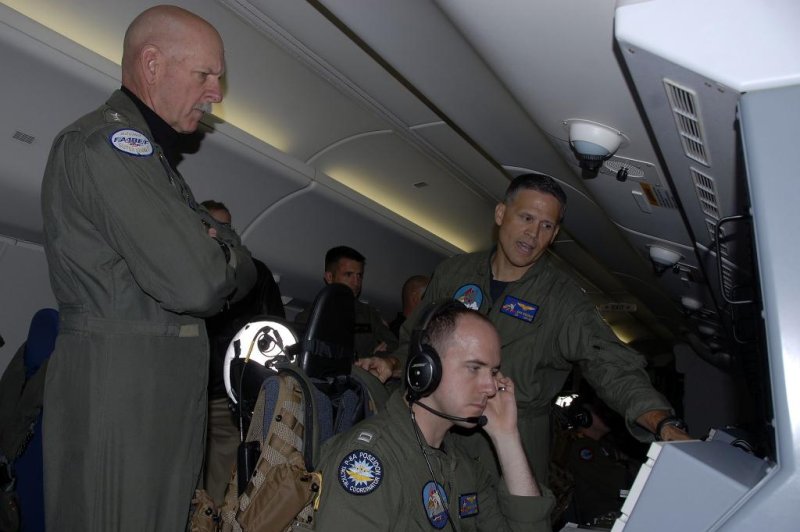U.S. Pacific Fleet commander Adm. Scott Swift was on board a maritime surveillance mission over the South China Sea on Saturday. China's state media has responded with criticism and broadcasts. Photo courtesy of Tyler Fraser/U.S. Navy
BEIJING, July 20 (UPI) -- China is stepping up preparations for potential disputes in the South China Sea after the commander of the U.S. Pacific Fleet engaged in a surveillance flight on Saturday.
The Pacific Fleet had publicly confirmed Adm. Scott Swift's presence on a Boeing P-8A surveillance plane with photographs on its website.
According to the U.S. Navy, Swift watched as a commanding officer explained the capabilities of the P-8A Poseidon aircraft during the seven-hour surveillance mission.
Washington has requested China put an end to land reclamation in the disputed Spratly Islands in the South China Sea, but Beijing has neither complied with Washington, nor responded to Manila's request to resolve the territorial disagreement before an international tribunal.
On Monday China's state-run media outlet Global Times called Swift's act "provocative," according to South Korean news network YTN.
Beijing's criticism of the U.S. commander was followed by footage from China's television network CCTV showing large-scale amphibious landing drills in an unidentified location, according to South Korean news agency Yonhap.
According to Chinese media the country's navy conducted its first multi-level amphibious landing exercise involving ships, soldiers and helicopters.
The footage showed the firing of missiles and guns, and the arrival of soldiers and tanks onshore.
Chinese press reported "Bison class" amphibious hovercrafts were deployed during the drill for the first time. The hovercrafts are capable of loading three heavy tanks, or ten armored cars with 140 soldiers on board.
"It is the world's largest hovercraft," CCTV reported.
The state-run media network also said four littoral compass ships are to be deployed in the South China Sea.
On Friday in Manila, Adm. Swift said U.S. forces are well prepared for unexpected events in the disputed maritime zone.















